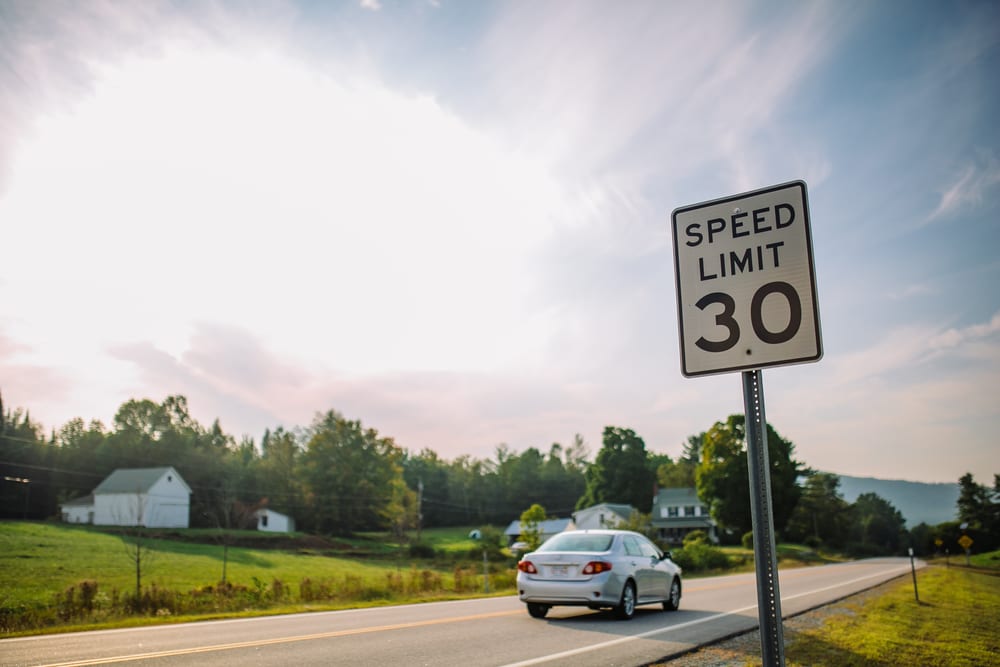

Following is an overview of the laws, limits, and fines as they relate to speeding traffic violations in the state of North Carolina.
Speed limits in North Carolina
70 mph: some rural freeways and interstates
65 mph: four-lane, freeway-grade highways
60 mph: some urban freeways and interstates, as well as some expressways and boulevards
55 mph: highways outside municipal corporate limits
35 mph: highways inside municipal corporate limits
35 mph: residential and urban districts
School zone speed limits vary among municipalities, and are as posted.
North Carolina code on reasonable and prudent speed
Maximum speed law:
According to section 20-141 of NC vehicle code, “No person shall drive a vehicle on a highway or in a public vehicular area at a speed greater than is reasonable and prudent under the conditions then existing.”
Minimum speed law:
Section 20-146 states:
“No person shall operate a motor vehicle at such a slow speed as to impede the normal and reasonable movement of traffic.”
And:
“A person driving at less than the legal maximum speed limit shall drive in the right-hand lane then available for thru traffic or as close as practicable to the right-hand curb or edge of the highway.”
Minimum speed limits apply only where signs are posted. The minimums don’t apply to vehicles towing other vehicles.
Due to variations in speedometer calibration, tire size, and margins of error in speed-detecting technology, it’s uncommon for an officer to pull a driver over for going less than five miles above the speed limit. However, technically any amount over can be considered a speed violation so best practices are to stay within the limit.
North Carolina has an absolute speed limit law. This means that a driver cannot argue a speeding ticket on the basis that they were traveling safely despite exceeding the speed limit. A driver may, however, choose to go to court and claim their innocence based upon one of the following:
The driver may oppose the determination of speed. In order to claim this defense a driver must know how his or her speed was determined and then learn how to disprove its accuracy.
A driver may claim that an emergency situation caused the driver to break the speed limit in order to prevent injury or damage to themselves or others.
The driver may claim a case of mistaken identity. If a police officer clocks a driver speeding and subsequently has to find them again in traffic, it’s possible that they could have made a mistake and pulled the wrong car over.
Penalty for exceeding the speed limit in North Carolina
First-time violators may:
Be fined up to $1000
Be sentenced to up to 60 days of jail time
Have their license suspended (based upon a point system)
Penalty for reckless driving in North Carolina
Exceeding the speed limit by 15 mph is automatically considered reckless driving in this state.
First-time violators may:
Be fined up to $1000
Be sentenced to up to 60 days of jail time
Have their license suspended (based upon a point system)
Violators may also be required to complete a driver improvement course. It’s of note that driving more than 15 mph over the speed limit will result in a suspended license, provided the speed of travel is faster than 55mph.



